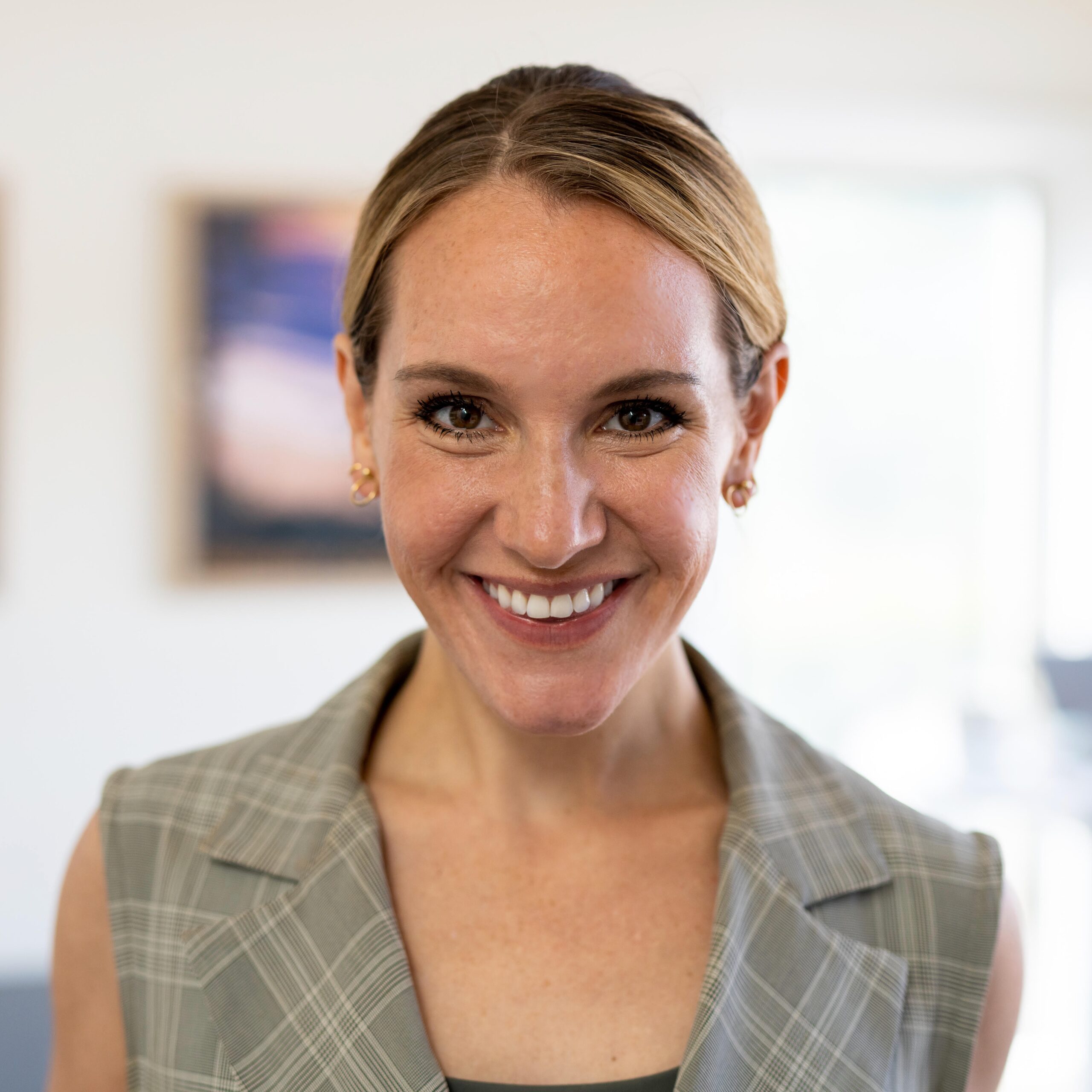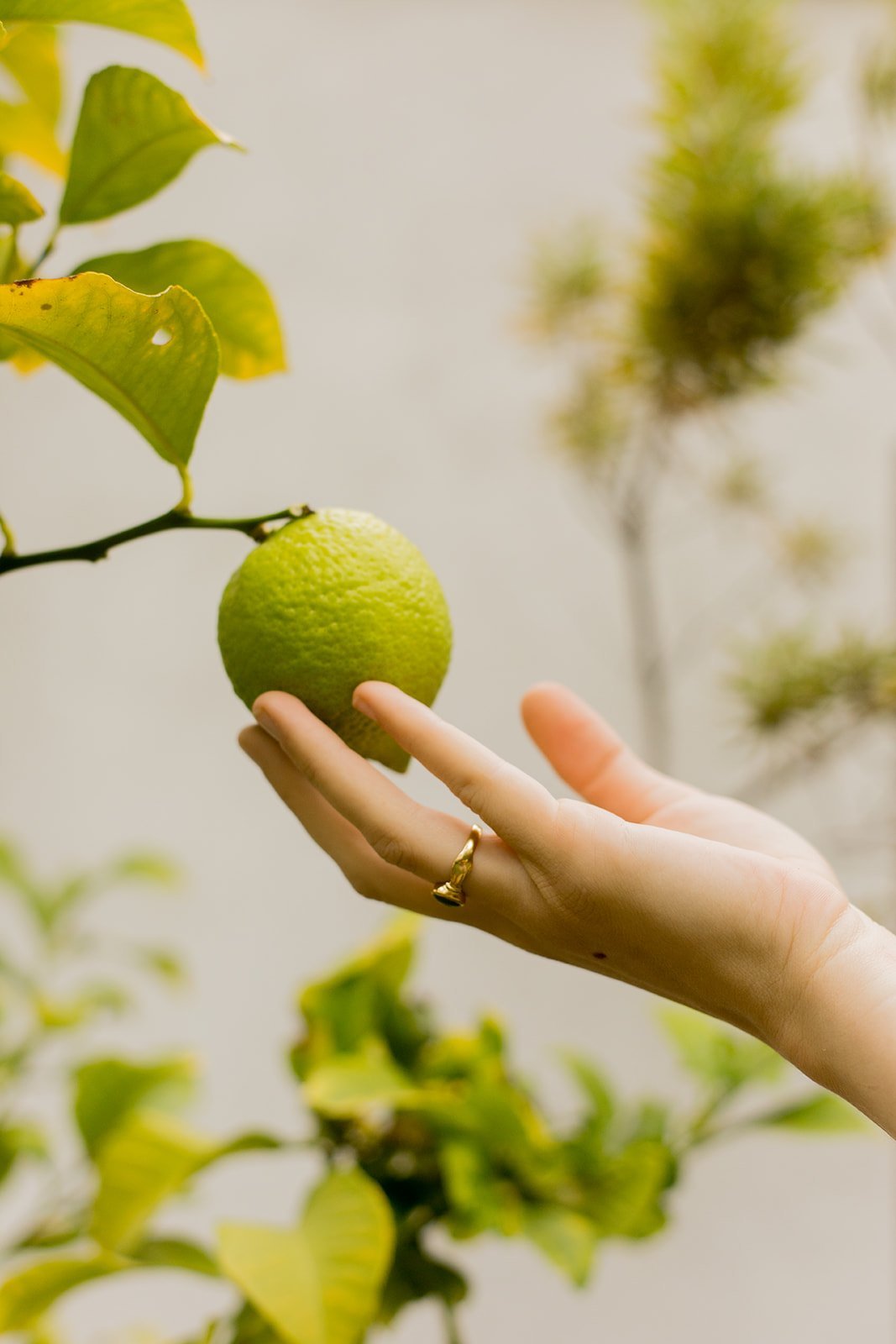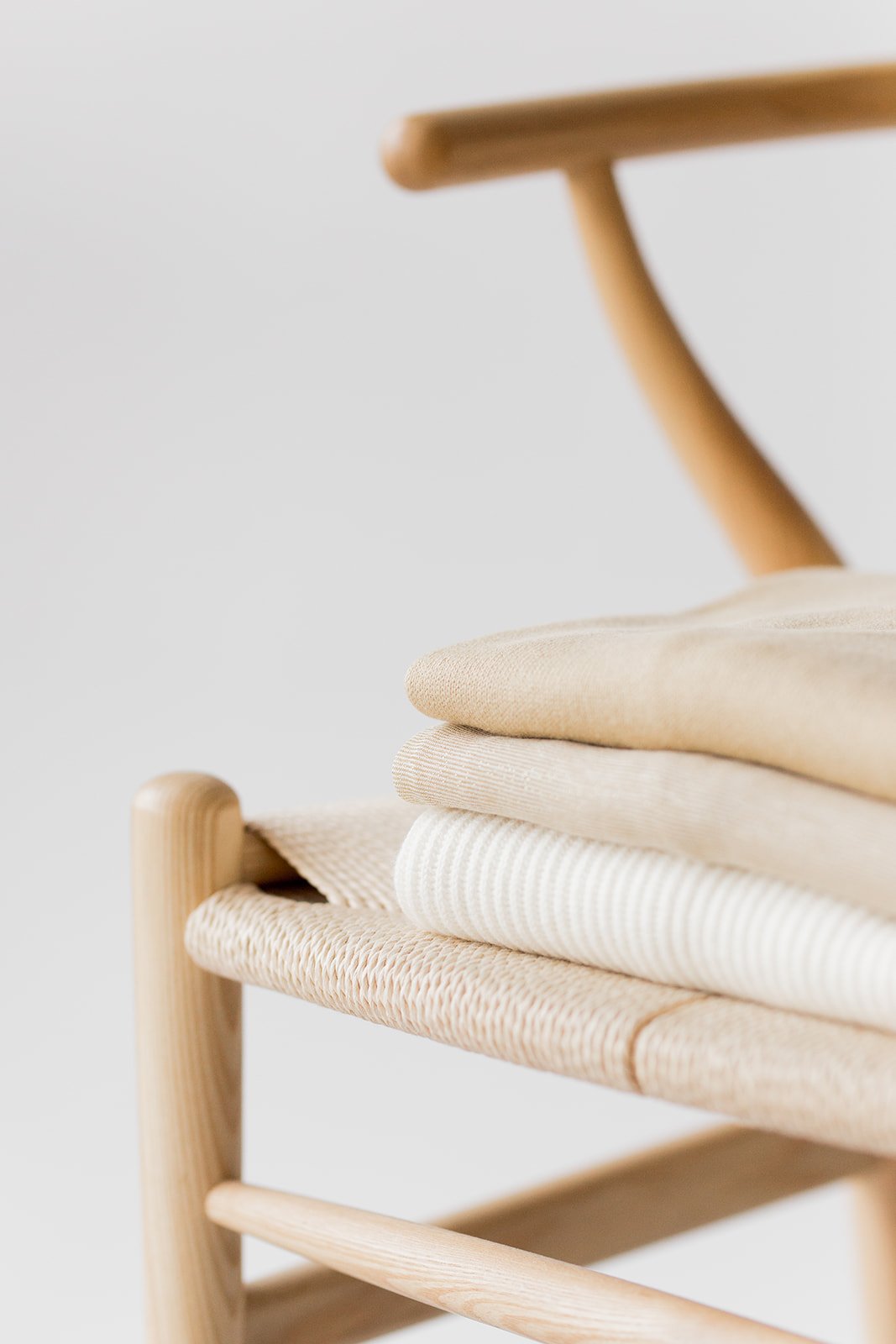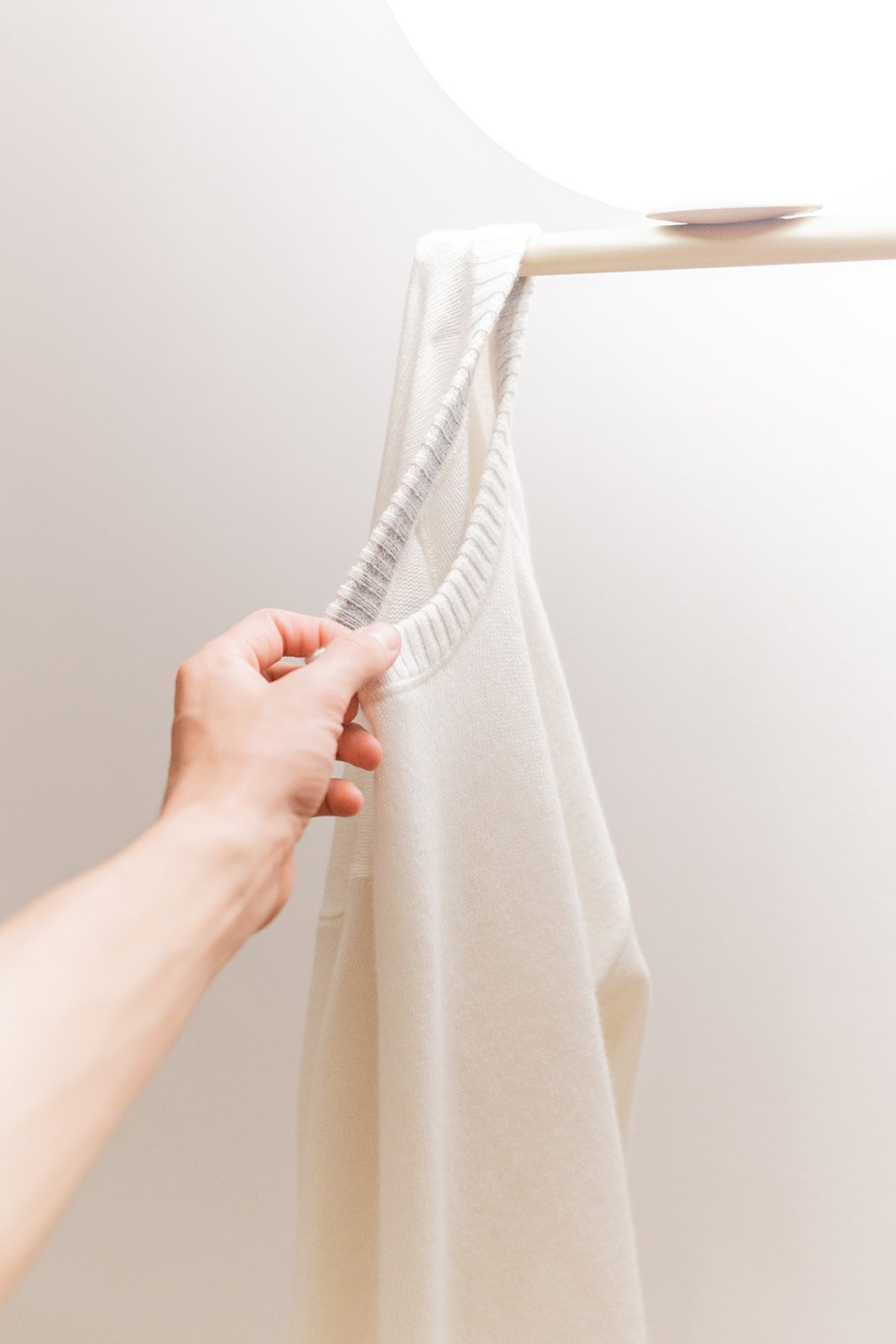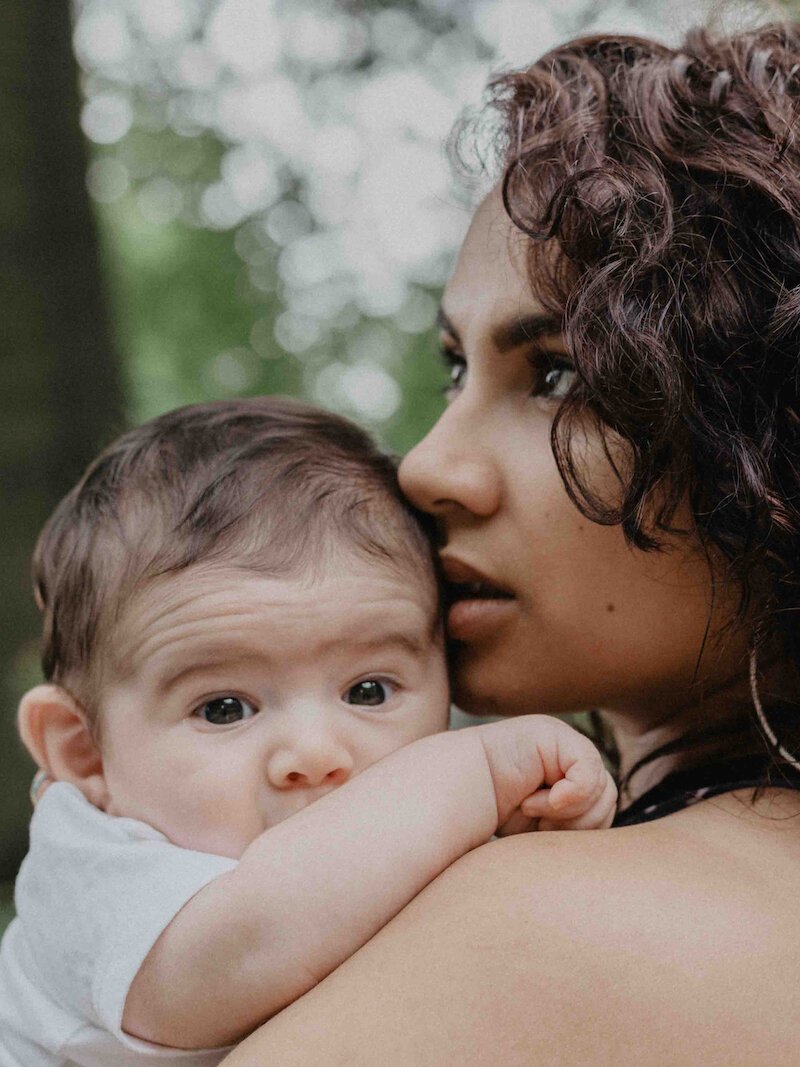
How I’m Managing Eco-Anxiety As A New Parent
Balancing Action & Self-Care In The Wake Of Climate Change
My daughter was just six weeks old when a heavy blanket of toxic smoke descended on our home city of Portland. I was aware of the wildfires devouring parts of California and Oregon, but we’d rarely felt any substantial effects from these natural disasters prior to 2020.
Bleary-eyed from sleep deprivation, I stared out the window at the grey-orange sky while I nursed our baby and my husband frantically taped up our windows and fireplace to prevent smoke from getting inside. He created a makeshift air purifier using a box fan and furnace filters (courtesy of YouTube) as I obsessively checked the Air Quality Index app.
There was the immediate stress of trying to protect our daughter’s newborn lungs from air that was ranked as the most hazardous in the world for nearly a week, but it also unleashed a broader sense of eco-anxiety that stayed with me long after the smoke cleared.
“I’ve developed a series of guidelines to manage my eco-anxiety without becoming numb to the issues we face.”
Was the week we’d just suffered a preview of my daughter’s future? Will her life experiences be overshadowed by a dying planet? Am I doing enough to help? Is there any hope?
The stress of new parenthood amidst an isolating pandemic and a fraught political landscape has been enough to make me (a fairly laid-back person) feel like an anxious mess. Babies have a way of keeping you busy, so sometimes, I can forget about these fears as I focus on keeping my tiny human alive. Inevitably, I will read an article (like microplastics being discovered in the placentas of unborn babies) that puts me right back into panic mode. Under the guise of educating myself, I end up doom-scrolling more often than I’d like to admit.
As I’ve worked through other postpartum anxieties, I’ve also developed a series of guidelines to manage my eco-anxiety without becoming numb to the issues we face.
1. Unplug and get outside together
Instead of spending too much time indoors reading about what aspects of nature’s beauty she might be deprived of in the future, I make a point to pop my daughter in her carrier and get outside together to enjoy what is here for us today.
A Harvard study found that even 20 minutes in nature reduces stress hormone levels in our bodies. Time outdoors has been proven to help babies sleep better and support cognitive development. It’s a win for everyone! I love using the AllTrails app to find new places to explore.
2. Be intentional about news sources and quantities
“I’m mindful to choose sources that offer solutions and action items in addition to explaining the problem(s).”
Absorbing information from reliable sources has always been important to me, but I’ve taken my vetting process for climate-related news a step further. Instead of clicking on any headline that grabs my attention, I’m mindful to choose sources that offer solutions and action items in addition to explaining the problem(s) we face. The How to Save a Planet podcast and influencers like Sophia Li and Summer Dean are some of my recent favorites to learn from.
Additionally, I’m mindful to avoid checking the news and social media until I’ve been able to exercise or meditate each morning. We also have a “no phone” rule around dinner and our baby’s bedtime routine. Ensuring my day starts and ends with intentional time unplugged is essential for my mental health.
3. Invest in the local community
An issue as colossal as climate change can make us feel powerless. But making in-person connections and getting my hands dirty (literally, covered in soil) brings me out of my head almost immediately. We’ve made a weekly habit of grocery shopping at the local farmer’s market and meeting those who grow our food. I’ve had opportunities to volunteer at a farm that focuses on regenerative methods. Though she’s just a baby, I know our daughter is absorbing all of this, and we hope she’ll carry a deep sense of community connectedness as she grows up and faces the next generation of global challenges.
I’m also looking forward to getting more involved with activists heading up local climate policies, showing up for relevant town hall meetings, and getting more granular about ways to impact my community.
4. Accept our reality and be prepared for what’s next
Between wildfires and an unusually severe ice storm, we were caught off-guard more than once last year. I’d prefer not to think about it, but these events are bound to increase in frequency. From regularly checking our air filters and having backups on hand to investing in basic survival necessities for power outages, we’re practically preparing our home to take care of ourselves and our neighbors for whatever comes next.
5. Take breaks for self-care and rest
“I find myself increasingly invigorated to fight for the future when I take time to cultivate joy in the present.”
It’s easy to allow the fragile condition of our climate to impose a sense of urgency that robs me of the ability to stay present. Still, I’ve been reminded by several full-time activists just how important it is to rest and avoid burnout. Self-care looks different for everyone and can change season to season.
For me (a raging extrovert who has spent a lot of time alone in the last year), it’s particularly important to take time to connect with other people. My mind and body are most at rest when I’m in a flow of conversation and laughter. I find myself increasingly invigorated to fight for the future when I take time to cultivate joy in the present. For others, solitude and reflection might be the antidote to burnout. Regardless of what self-care looks like, we all need to make time for it in our own way.
Becoming a parent has escalated the weight I feel when I consider the condition our planet will be in long after I’m gone, but that weight isn’t entirely negative. It’s a weight that grounds me in purpose and presence. Giving birth increased my connectedness to the rhythms of nature. Seeing the world through my daughter’s wondering eyes reminds me how mysteriously magical this place is. There’s a beauty that comes with the burden of caring. And there’s a deeper appreciation for what we have right in front of us when we recognize its fragility.
“There’s a beauty that comes with the burden of caring.”
Now, when I look at my sweet sleeping one-year-old, I’m able to direct my thoughts away from despair and towards curiosity. What wonderful detail of this world will you discover next? How will we make the future better together?
After all, where there is new life, there is always hope.
Ellie Hughes (she/her) spent several years as a sustainable fashion blogger and now works as a freelance writer, marketing consultant, and creative producer alongside her husband. They live in Portland with their daughter (Ro) and corgi (Pip).
